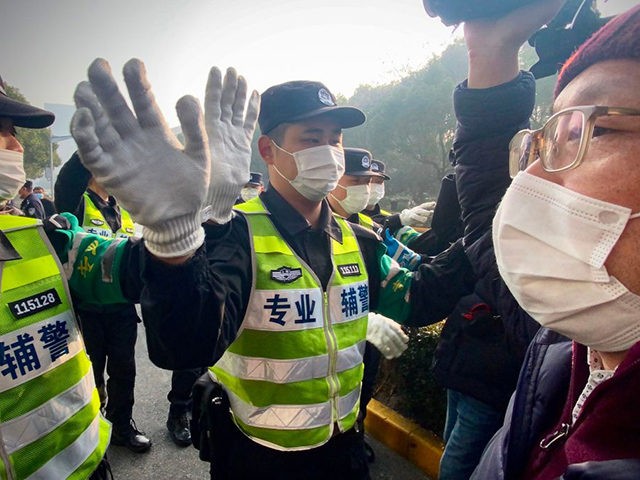Reporters Without Borders, commonly known by its French acronym RSF, published its annual report on press freedom Tuesday. The 2021 edition found press freedom in decline around the world and said “China continues to be the world’s biggest jailer of press freedom defenders.”
RSF subtitled its report: “Journalism, the vaccine against disinformation, blocked in more than 130 countries.” A total of 180 countries appeared in the press freedom index, which means 73 percent of the world’s nations partially or fully block journalism.
“The Index data reflect a dramatic deterioration in people’s access to information and an increase in obstacles to news coverage,” RSF wrote. “The coronavirus pandemic has been used as grounds to block journalists’ access to information sources and reporting in the field. Will this access be restored when the pandemic is over?”
RSF found authoritarian regimes energetically using the coronavirus as an excuse to crack down on “disinformation,” a category that tends to include all information that threatens the regime. Even reporters in some nations given overall high ratings for press freedom, such as number one country Norway, raised complaints about “a lack of access to state-held information about the pandemic.”
The index of press freedom factored mob violence against journalists into its calculations, as well as state repression. For example, RSF said former U.S. President Donald Trump’s “final year in the White House was marked by a record number of assaults against journalists (around 400) and arrests of members of the media (130).” However, RSF made only one mention of Big Tech suppressing journalism: Facebook banning Australian media in retaliation for Australian legislation that required social media companies to “reimburse the media for content posted on their social media platforms.”
There was no mention of Big Tech suppressing news such as the bombshell New York Post report on Hunter Biden’s laptop and RSF risibly claimed “the first 100 days of Joseph R. Biden’s presidency saw health[y] improvements to government accountability and transparency,” even though one of the biggest stories from that period was Biden blocking reporters from covering his border crisis.
Its report also omitted disinformation credentialed media outlets spread in a comprehensive review of press freedom. Journalism is not only threatened by official suppression and mob violence, but also by journalists who abandon professional standards and produce false, biased reporting that dramatically increases public skepticism of the news media.
China’s offenses against press freedom were unambiguous, from throwing 120 journalists in jail — “often in conditions that pose a threat to their lives” — to taking “Internet censorship, surveillance, and propaganda to unprecedented levels.”
“By relying on the massive use of new technology, President Xi Jinping’s regime has imposed a social model based on control of news and information and online surveillance of its citizens. China’s state and privately-owned media are under the Communist Party’s ever-tighter control, while the administration creates more and more obstacles for foreign reporters,” the report noted.
The only environments more hostile to press freedom in 2020 than China were found in Turkmenistan, North Korea, and Eritrea.
“Regardless of their continent, these countries maintain absolute control over all news and information, enabling the first two to claim they had no Covid-19 [Chinese coronavirus] cases and the third to maintain complete silence about the fate of 11 journalists who were arrested 20 years ago, some of whom have allegedly been held in metal containers in the middle of a desert,” RSF noted.
The report warned Beijing is “trying to export its oppressive model by promoting a ‘new world media order’ under China’s influence.”
This highlights a danger that completely inverts early hopes for the Internet as a bold frontier for free speech, an endless tidal wave of uncontrollable information that would erode dictatorships the way ocean waves wear mountains down. On the contrary, the Internet has become a transmission system for authoritarian ideals. It enables regimes like China to make press freedom into a crippling liability for countries that have it.
In the wake of the coronavirus pandemic, Beijing is explicitly arguing that democracy, capitalism, free speech, and freedom of the press are destabilizing elements that make Western countries less effective, less reliable, and even morally inferior to China’s communist tyranny.

COMMENTS
Please let us know if you're having issues with commenting.